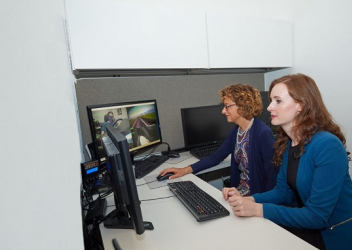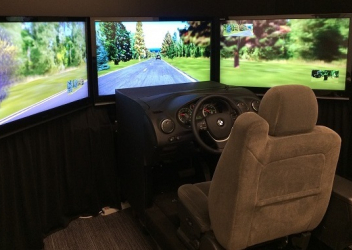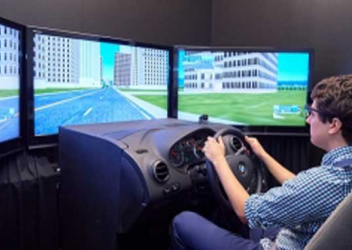CIRP Driving Simulators
Housed within the Roberts Center for Pediatric Research at Children's Hospital of Philadelphia, the Center for Injury Research and Prevention Driving Simulators are dedicated to help answer questions conducted through qualitative and quantitative research. The high-fidelity, fixed-base driving simulator and the mobile driving simulator have rich audio and visual environments for conducting research.
CIRP provides the technical and administrative support to help researchers conduct simulator-based observational studies.
Key Features
- a hands-off detection BMW steering wheel, provided by IEE, a leading sensor and automobile component manufacturing company. This improvement will help investigators detect drivers' hands on -- and off -- the wheel for autonomous vehicle studies
- integrated advanced, lightweight eye tracking capabilities, including Tobii Pro Glasses 2 and analyzer softwarea video-based data visualization program for processing simulator data
- specialty programming to analyze eye-tracking data
The driving simulators offer customizable programming to replicate controlled scenarios typical in the driving environment, such as dynamic traffic behaviors, pedestrians, distractions, time of day, and weather to fit the needs of researchers.
Used In Research
CIRP's driving simulators have been used in several Teen Driving Safety studies to help improve the assessment of driving skills and to better understand driving behaviors and emotions to improve performance. Through its library of drives, the driving simulators also have the potential to help answer clinical research questions beyond traffic injury prevention, including cognition, injury recovery, attention, and more. The use of these driving simulators also have the potential to help educate and train young novice drivers.
Learn More
Contact Chelsea Ward McIntosh, MS, CCRP for more information about using the fixed-base driving simulator or mobile driving simulator in your research.






